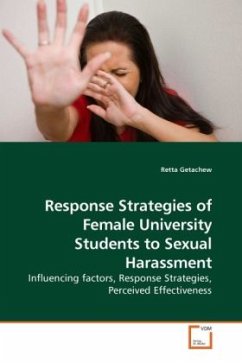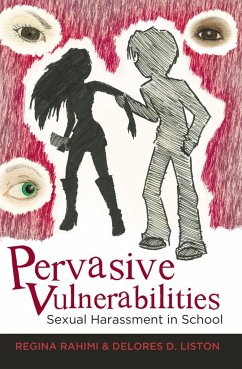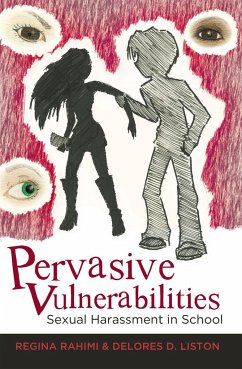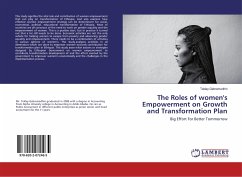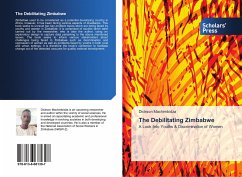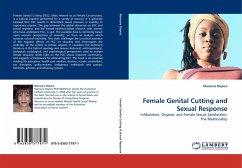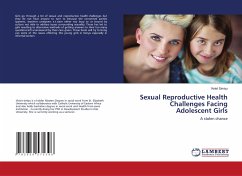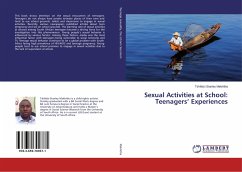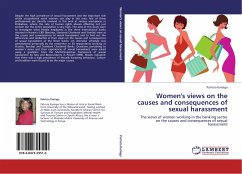
Women's views on the causes and consequences of sexual harassment
The views of women working in the banking sector on the causes and consequences of sexual harassment
Versandkostenfrei!
Versandfertig in 6-10 Tagen
39,99 €
inkl. MwSt.

PAYBACK Punkte
20 °P sammeln!
Despite the high prevalence of sexual harassment and the important role which occupational social workers can play in this area, few of these professionals are directly involved in this area at various workplaces in Zimbabwe, where the rate of human rights abuses affecting not just women but the entire population is very high. The aims of this study were to investigate what female employees in the three international banks situated in Harare s CBD (Barclays, Standard Chattered and Stanbic) view as the causes and consequences of sexual harassment and to find out the differences and similarities...
Despite the high prevalence of sexual harassment and the important role which occupational social workers can play in this area, few of these professionals are directly involved in this area at various workplaces in Zimbabwe, where the rate of human rights abuses affecting not just women but the entire population is very high. The aims of this study were to investigate what female employees in the three international banks situated in Harare s CBD (Barclays, Standard Chattered and Stanbic) view as the causes and consequences of sexual harassment and to find out the differences and similarities in their views on the causes and consequences of sexual harassment at the three banks. An interview schedule was administered personally by the researcher to 63 respondents working at Stanbic, Barclays and Standard Chattered Banks. Questions pertaining to women s views and their experiences of sexual harassment were asked using a guideline from the Multi-Perspective Framework of sexual harassment by Tata and Bowes-Sperry in Powell (1999). Results indicated that there was a high prevalence of sexually harassing behaviour. Culture and tradition were found to be the major causes.



